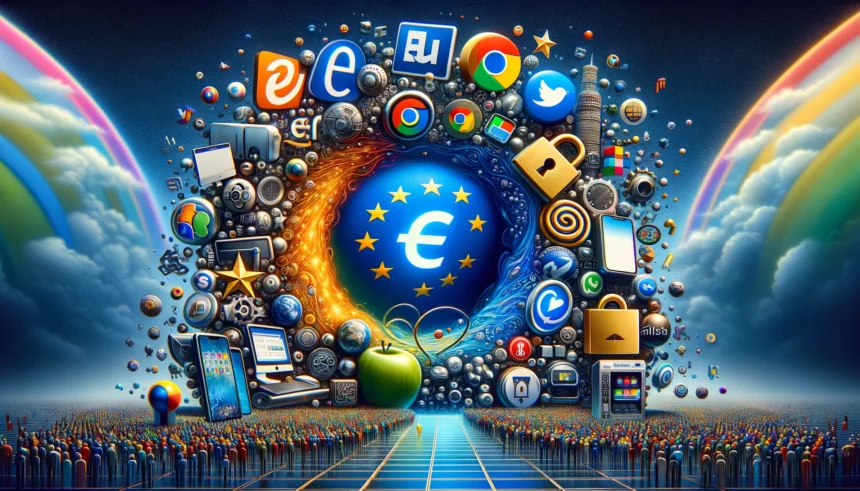In a significant shake-up for the tech industry, European consumers are witnessing a wave of transformative changes to the digital landscape, thanks to the European Union’s robust enforcement of its Digital Markets Act. This week, some of the globe’s most influential tech behemoths have rolled out updates and modifications to their apps, social media platforms, and web services, marking a pivotal compliance milestone with EU regulations.
The Digital Markets Act, a landmark piece of legislation aimed at curbing the monopolistic practices of major tech entities, has designated six leading companies as “gatekeepers,” subjecting them to stringent new rules. These companies include tech giants such as Amazon, Apple, Google’s parent company Alphabet, Meta, Microsoft, and ByteDance, the owner of TikTok. These firms were thrust into the spotlight in September 2023, when they were officially classified under this act, setting the stage for a seismic shift in how digital markets operate within the EU.
For European consumers, the changes herald a new era of digital autonomy and competition. One of the most notable adjustments is the ability to select default browsers and source iPhone apps from outside the Apple App Store, breaking free from the longstanding constraints of pre-selected software and proprietary app ecosystems. This initiative aims to dismantle barriers and foster a more open, competitive online environment, enabling small, innovative businesses to thrive alongside tech giants.
The adjustments span a broad spectrum of services, from mapping and search functionalities to messaging platforms like WhatsApp and Facebook Messenger. Google has introduced additional consent banners in Europe, seeking user permission for data-sharing purposes and ensuring a level playing field by eliminating preferential treatment for its services. Similarly, Apple’s concession to allow app downloads from third-party sources represents a significant departure from its traditionally closed ecosystem.
Meta’s adaptation involves making WhatsApp and Messenger interoperable, a technical hurdle aimed at enhancing user connectivity across different platforms. Likewise, Microsoft has empowered users to uninstall the Edge Browser and Bing web search, further endorsing user choice and control over default software options.
The companies’ efforts to align with the DMA stipulations are subject to strict oversight, with the European Commission poised to levy hefty fines—up to 10% of a company’s global turnover—for any breaches of compliance. As part of the transparency measures, the gatekeepers are required to submit detailed reports, including independently audited descriptions of profiling techniques, ensuring the public and regulators can scrutinize their adherence to the new standards.
Margrethe Vestager, the Executive Vice-President in charge of competition policy, and Thierry Breton, the EU’s internal market commissioner, have lauded the changes as a significant step toward dismantling monopolistic practices in the digital arena. Their statements underscore the EU’s commitment to fostering an open, competitive online marketplace, emphasizing the profound impact these changes are poised to have on both European consumers and the global digital economy. This initiative not only promises to reshape the competitive landscape but also empowers consumers with unprecedented control over their digital experiences, heralding a new chapter in the saga of digital market regulation.
















